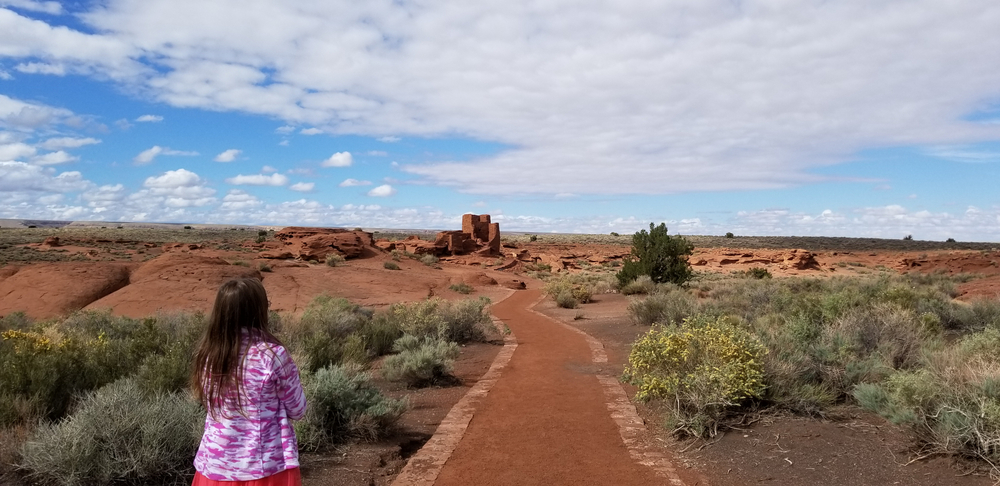
TheBentSpoon/Shutterstock
.
For decades, we have repeated and recapitulated: Our nation’s foster care system is broken. New Mexico, which receives the lowest markers of child wellbeing and the second-highest level of childhood poverty, has, not coincidentally, one the worst child welfare systems in the nation. It is largely coercive and punitive, and disproportionately targets low-income children of color.

Bette Fleishman
Further, 23 Native American tribes and pueblos are located in the state. All too frequently, Native children are wrested from their communities and culture without a thought given to the most appropriate placement; often they should not have been removed at all.
In September 2018, 14 children in the foster care system, as representatives of all foster children in New Mexico, teamed with two nonprofit organizations, Disability Rights New Mexico and Native American Disability Law Center, to file a lawsuit “seeking essential care, stability, treatment, and support for New Mexico’s 4,700 foster children.”
The lawsuit accuses agencies of failing to provide sufficient caseworkers, foster parents and mental health professionals; lack of trauma screening; a complete absence of appropriate, adequate and coordinated behavioral health services; inconsistent monitoring of children’s health and treatment, and disjointed service provision, leading to gaps in collaboration, non-individuated planning processes and failures to place children with appropriate caregivers.
In short, all too often, New Mexico children in foster care are abused by the very agencies purporting to protect them. They are removed from their homes in the middle of night. They are shuffled into unsafe and unstable homes where they may be drugged, physically restrained or abused. Worse yet, many children are shipped out of state, away from their community, their siblings, everything they have ever known.
Why does this matter? The effects of trauma are devastating. They interfere with essential functions, such as sleep and cognition and life activities. They are a devastatingly reliable predictor of a life filled with turmoil: health difficulties, substance abuse, poor school performance, an increased likelihood of incarceration. Foster children already face difficult life outcomes. We want the child welfare system to support their healing and growth — not to inflict more injury and pain.
However, this past March, the plaintiffs reached a groundbreaking settlement with the state’s child welfare agency (New Mexico Children, Youth, and Families Department) and the Human Services Department. Both agencies agreed the complaints were credible and that partnership was needed to fix the system. While many other states have reached similar settlements, few have proposed to implement such sweeping measures. The aim is to improve the system such that foster children are not retraumatized once they are in state custody.
The settlement is a bold step toward a responsive system of trauma-informed care. It calls for a complete cultural shift within the child protective community, and is the first to include protections for Native children through the Indian Child Welfare Act (ICWA). Native children have been especially traumatized by the system, which historically disregarded their language, healing and religious practices, and traditions through forced, policy-based removals of children from their homes and placements with non-Native families.
As agreed in the settlement, upon entry into the foster care system, every child (not just those who appear visibly traumatized) will be screened so they may receive appropriate treatment and support. Stable and safe kin caregivers will be prioritized as placements for children instead of strangers’ homes. Children will no longer be housed in motels, offices or out-of-state treatment centers unless as a last resort. Effort will be made to recruit culturally reflective, community-based foster families.
If implemented properly, these and a number of other trauma-informed stipulations (which can be found here) will transform New Mexico into a model for child welfare best practices for the entire country. The changes are ordered to be completed by 2023.
While the settlement is certainly a step in the right direction, it is by no means the end of the road. The lawsuit did not address several important concerns: how children enter and exit the system and, just as importantly, the provision of supportive services for the parents.
There is much work to be done. Yet, there is hope. If we can change the minds of the caseworkers, the possibility of a complete cultural shift remains in sight.
Bette Fleishman, J.D., M.A., the executive director at Pegasus Legal Services for Children, provides legal representation as a youth attorney and guardian ad litem to children in the child welfare system. She is a commissioner on the Children’s Court Improvement Commission and a member of the Children’s Court Rules Committee.





























